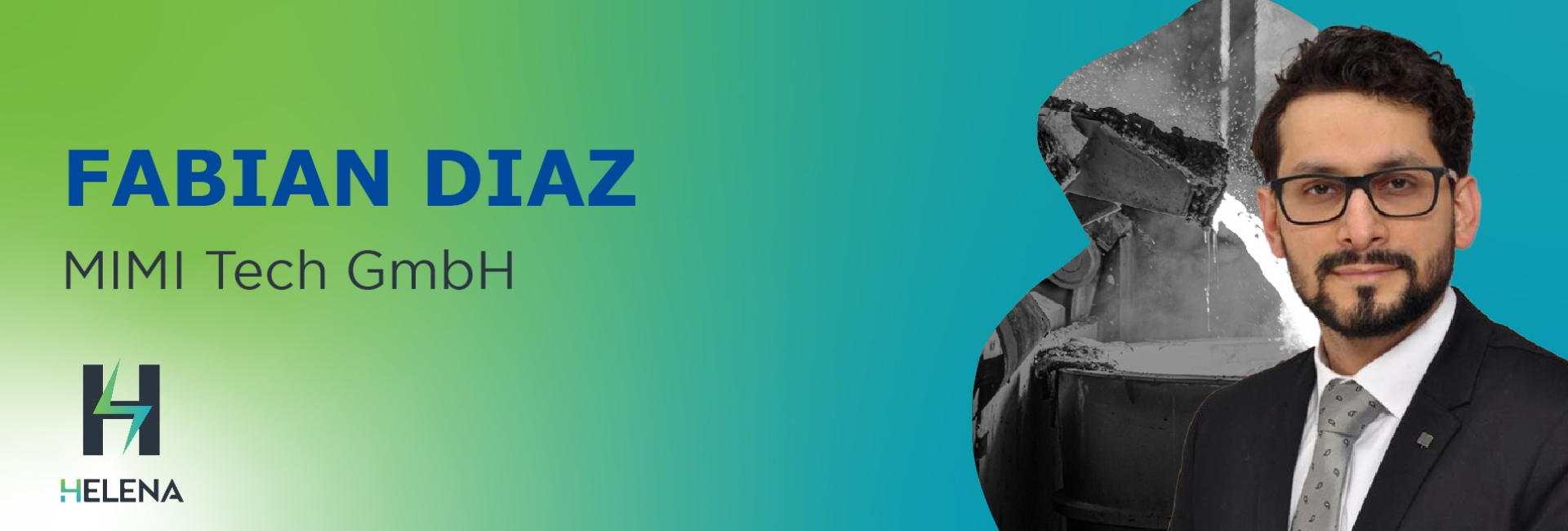Behind the HELENA Project #4 | Dr. Sara Abada (IFP Energies Nouvelles)
We interviewed Dr. Sara Abada, engineer at IFP Energies Nouvelles, to learn first-hand the key attributes to understand the strengths of the HELENA Project.

Europe´s commitment to achieving leadership and guiding the global Energy Transition is total. A clear example of this is its support for the many initiatives across the continent that seek to electrify some of the most polluting industries, such as transportation. Through this series of contents, we intend to know the perspective of the researchers involved in the HELENA Project regarding the virtues of the halide solid-state batteries developed.

MIMITech GmbH is a German based consulting company specializing in extractive metallurgy of non-ferrous metals and process technology for metallic high tech materials. The focus is to provide metallurgical expertise to smelters and refineries and to those companies that fabricate, trade, design, specify and test respective equipment.
Life Cycle Assessment (LCA) is an important tool used to evaluate the environmental impacts of a product or processes throughout its entire life cycle, from the extraction of raw materials to its end-of-life handling and recycling. LCA can provide valuable information to battery developers, manufacturers, consumers and even recyclers about the environmental impacts of batteries and their contribution to the environmental impact. For example, at HELENA, the LCA can be used to compare the environmental impact of the studied solid-state batteries and all sub-processes in the manufacturing and end-of-life processing to detect “hotspots” and try to develop strategies for minimization of e.g. global warming, land use, water consumption and etc. Overall, LCA is a critical tool for battery development because it provides a comprehensive and holistic approach to evaluating the environmental impact of batteries and can guide efforts to improve the sustainability of the entire battery life cycle.
Several factors influence the definition of a recycling route for the HELENA Batteries. These include the material matrix, compatibility with other commercial batteries, the selectivity of recycling processes, and the quality of recycled products. Our goal is to adopt a circular concept and explore all possibilities for HELENA, from pre-processing to mechanical separation and extractive technology. We are following industrial approaches and technologies with advanced development. Fortunately, despite limited information on solid-state batteries, we can leverage data from other materials with similar chemistries.
To evaluate the performance and benefits of pyro or hydrometallurgical extraction methods using our cell chemistries, we will first perform simulations using thermochemical data and literature. The best-performing technology will then be brought to the lab for experimental validation, and based on the results, an optimization of the selected processes will be considered. Direct recycling will be applied to accessible materials like casing and structural materials, which are already being done in the industry.
Our primary motivation is to remain competitive, harmonize our systems with other batteries, and exceed the expected recycling targets from the EU for 2023. This will contribute to the circular economy of metals.
MIMITech is involved in activities related to working out a recycling concept by comparing different suitable methods and process steps. The recycling path is specifically designed for the cell type in this project.
If you want to know the latest trends in energy storage and new developments in research, subscribe.